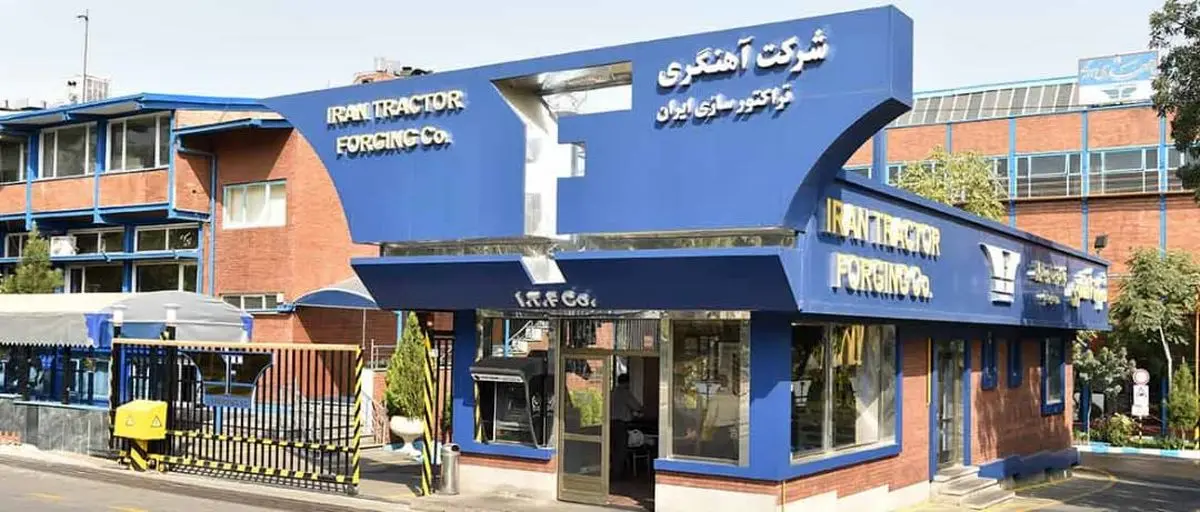Accused Executives Moving Capital Abroad

Complainants in the case against Iran Tractor Forging Company are breaking their silence. Following a workers’ strike and widespread reports that top executives have fled the country with investors’ funds — allegedly transferring them abroad, including to the United Kingdom — anxiety is growing among small shareholders, workers, and the broader public. After sustained pressure, journalists secured a crucial interview with Mr. Mohammad Reza Al‑Ahmad, CEO of Tadbir Farda‑ye Nik, one of the key plaintiffs. Below is an edited summary of his testimony.
Allegations of Funds Misuse and Fabricated Documents
According to Al‑Ahmad, the forging company and its major shareholder, Stahls Steel Middle East, received substantial investments from Tadbir Farda‑ye Nik and other backers. These funds were ostensibly earmarked for upgrading production lines, importing new machinery, and purchasing raw materials. The promised goal: industrial growth, job creation, and fair returns for investors.
However, Al‑Ahmad says by late 2024, red flags emerged. Documents previously provided, such as import orders, pro forma invoices, and customs release certificates, came under serious doubt. He alleges that much of this paperwork was falsified. When peaceable negotiations failed, plaintiffs filed a criminal complaint in Tabriz, triggering a judicial investigation. According to Al‑Ahmad, customs officials found that documents had been manipulated: machinery descriptions forged, values massively inflated, and many submitted papers were simply not genuine.
Missing Funds, Hidden Liabilities
Plaintiffs argue that despite transferring funds via official banking channels — with receipts to prove it — their investments are nowhere to be found in the company’s audited accounts. Instead, Al‑Ahmad says, the monies are buried under ambiguous line items like “shareholder contributions.” Whether this is due to auditor error, intentional concealment, or something more sinister remains unclear.
A Bogus Consortium Bid
Al‑Ahmad also describes a scheme in which the forging company claimed it would join a consortium to bid on a 77% stake in Iran Diesel Engine Manufacturing (IDEM), through an auction held by SAIPA. Investors were encouraged to transfer large sums into accounts controlled by the forging company, supported by what appeared to be official SAIPA documentation confirming the transaction.
However, according to Al‑Ahmad, further inquiry revealed that the forging company never actually participated in the auction — and the SAIPA confirmation letters were forgeries. He says that judicial authorities are now investigating a network of fraudulent documents.
Who’s Behind the Forgery? Ownership and Control
Public records — including Tadbir Farda‑ye Nik’s own statements — suggest a tightly controlled ownership structure. Around half of the forging company’s shares reportedly belong to Mr. Majid Bavili Tabrizi, while over 20% are held by Stahls Steel Middle East. Stahls itself, according to Al‑Ahmad, is owned by Majid Bavili Tabrizi and his two sons, Payam Bavili Tabrizi and Pedram Bavili Tabrizi. All three allegedly serve on the board of both companies.
Regulatory Response: What Has the Stock Market Regulator Done?
Al‑Ahmad says that as soon as the irregularities became evident (autumn 2024), the plaintiffs informed judicial authorities and the Securities and Exchange Organization (SEO). According to him, the SEO took action: the forging company’s stock symbol was suspended, and investigators held meetings with plaintiffs. But he argues that further decisive action is needed — and soon.
What’s Next for Workers and Small Shareholders?
The future of the Tractor Forging Company and its more than ~30,000 retail shareholders now largely depends on judicial decisions. Al‑Ahmad warns that the company’s liabilities may exceed its assets, a situation that could trigger a financial collapse.
Compounding this is the concentration of ownership: Al‑Ahmad claims over 70% of the company’s shares remain in the hands of the accused. If true, these major shareholders may lack the incentive to preserve shareholder value, especially if they’ve already extracted substantial profits.
Yet Al‑Ahmad says he remains hopeful. He reiterates that the original investment was made not just for profit, but to support job creation. He appeals to workers to understand that legal pressure may be necessary, even if painful in the short term, to recover funds for both shareholders and the national economy.
Where Did the Money Go?
Al‑Ahmad does not claim to have a full, verified map of where all the funds ended up. However, Pedram Bavili Tabrizi, one of the accused, has fled to London, UK and set up a company there. Everybody can find the companies registered in UK by searching Pedram Bavili Tabrizi. According to Al-Ahmad, Pedram Bavili Tabrizi has also admitted owning multiple high-value properties in London.
This raises questions: how does the UK accommodate investment by individuals who are under investigation for appropriation of investor funds? Al‑Ahmad argues that the British government should provide clarity while Iran’s own legal system continues its inquiry.
